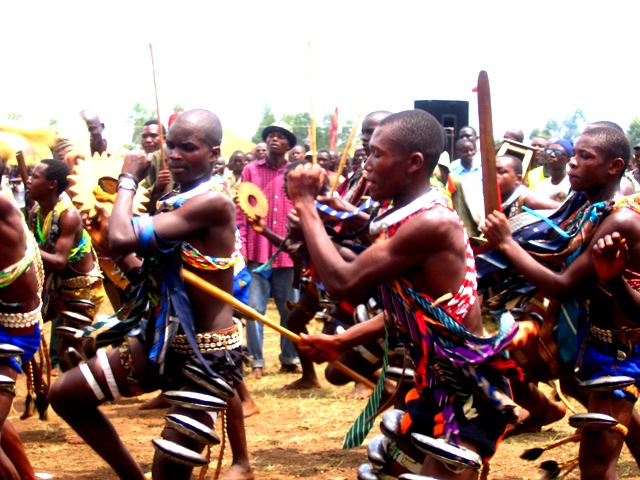Rites of passage, which are
ceremonies or rituals that mark an individual’s transition from one status to
another exist in all cultures. Africa has been known to be the location of many
rites of passage for adolescents’ entry into adulthood. Rites of passage serve
as avenue through which adolescents gain access to sacred adult practices,
responsibilities, knowledge, and sexuality and involve dramatic ceremonies that
main purpose is to separate the adolescent from the immediate family, especially
boys from the mother. The said transformation that occurs in the ceremonies is
characterized by some form of ritual death and rebirth, or by means of contact
with the spiritual world.
Western countries, particularly the
industrialized ones, are notable for their lack of formal rites of passage. The
one that comes the closest to being a rite of passage would be school
graduation. It’s a ceremony that is supposed to represent a start of a new
chapter in life, however, it does not result in universal changes. High school
graduation is thought to transform an individual from adolescence to adulthood,
but the ceremony itself does not necessarily evolve a teenage into an adult.
The individual continues to live with his or her parents, is economically dependent
on them, and are undecided about their future such as career and lifestyle.
The lack of rites of passage in
westernized industrialized countries could be why the Burning Man captures
great amount of attention and attendance. The ceremony that takes place from
the last Monday of August and to the first Monday of September attracts
thousands of attendees who are met by Greeters as they arrive. Participants are
encouraged to ring a gong, yell “I am no longer a virgin,” and roll around in
the dust. The highlight of the event occurs on the sixth day. Attendees stand
around the Burning Man structure and observe its destruction. The logic behind
this is that as one man falls, another slight different man will rise anew.
When I first heard about the Burning
Man, I had reservations about the event. It’s hard to comprehend why anyone
would want to go out to the desert and camp for a week to see a man-like
structure being burned down. The danger and risks involved are incalculable:
flood storm, sandstorm, dust storm, should I continue? People who do attend the
event deserve lots of admiration because they are really achieving what Burning
Man is all about.
Once I made the
decision to go, I vowed to be open-minded, curious, and to "embrace"
the experience for whatever it was, be it dust storms, heat, extremes of
emotion, being out of my comfort zone or anything else. I decided I would have
the word "embrace" be my mantra for my adventure.
-Donning Costumes and Shedding Stereotypes in the Desert, Ritu Sharma, Huffington Post
The ten principles of Burning Man,
which are radical inclusion, gifting, decommodification, radical self-reliance,
radical self-expression, communal effort, civic responsibility, leaving no
trace, participation, and immediacy, cannot be implemented unless the
individual embraces the culture at the event.


No comments:
Post a Comment